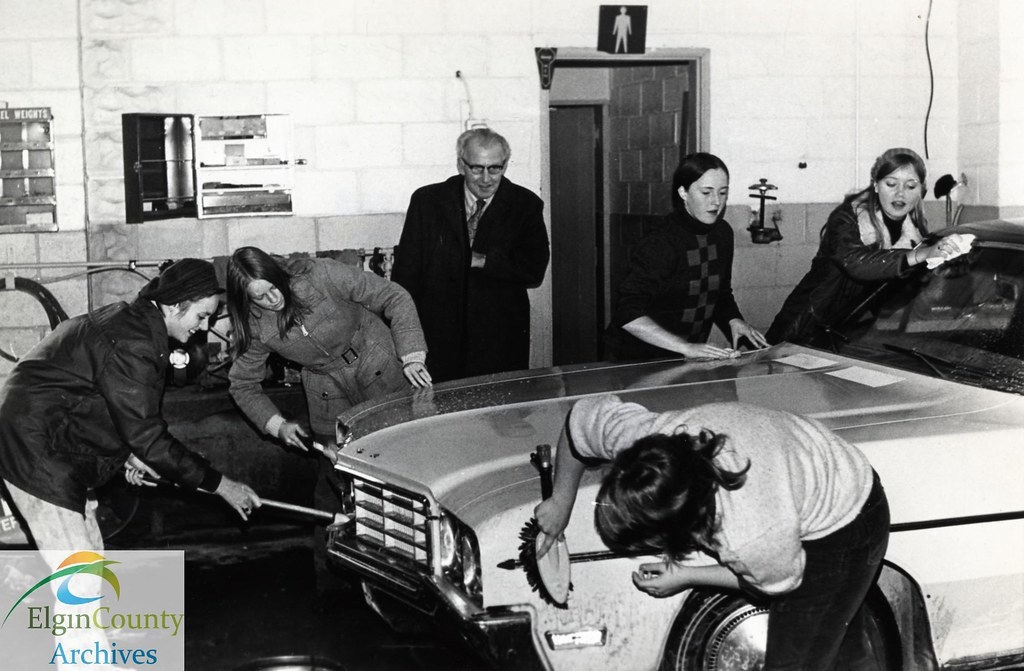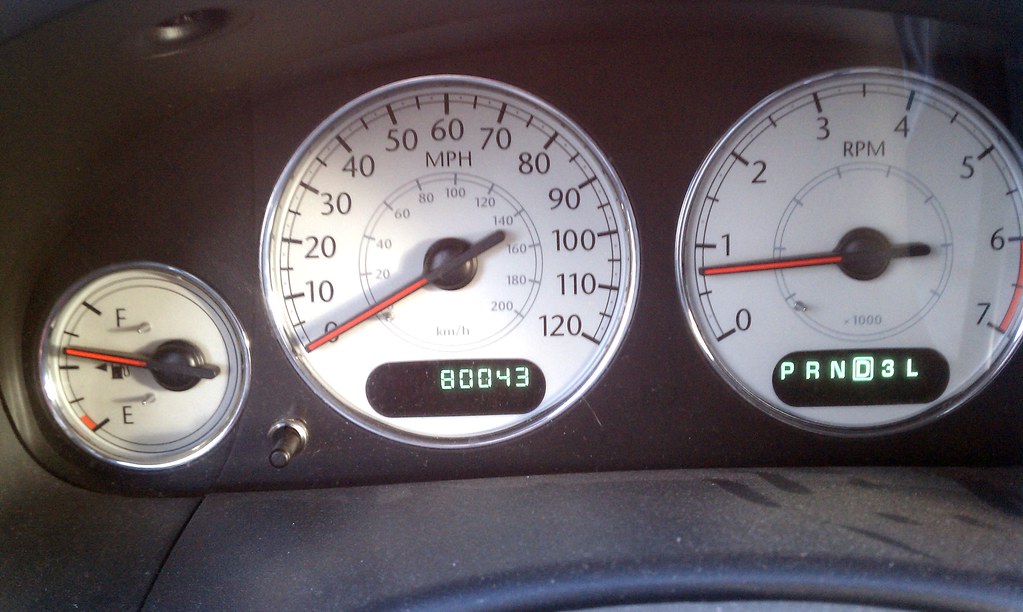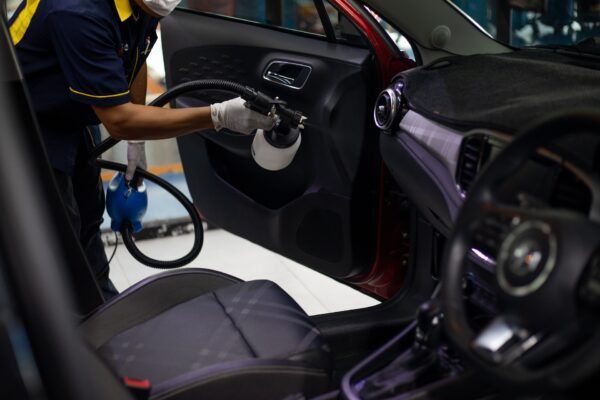
Embarking on the journey to purchase a used car can be an incredibly exciting endeavor! You’re searching for that perfect blend of value, reliability, and affordability, aiming to snag a fantastic deal that fits your budget and lifestyle. Used vehicles truly offer significant savings compared to their brand-new counterparts, presenting a golden opportunity for savvy buyers. However, this promising landscape also harbors a dark side, fraught with potential pitfalls and clever deceptions designed to separate you from your hard-earned money.
Indeed, the used car market is a breeding ground for scams, a growing menace that unfortunately costs Americans billions of dollars each year. With more and more transactions moving online, fraudsters are becoming increasingly sophisticated, baiting traps for unsuspecting buyers and sellers alike. The numbers are quite sobering: experts estimate global losses to car buying and selling scams exceed $30 billion annually, with a reported 75% increase in online used car scams since 2021 alone. It’s a clear signal that vigilance isn’t just a good idea—it’s absolutely essential.
That’s precisely why we’re here today. Our mission is to arm you with the knowledge and practical strategies needed to navigate this complex terrain safely. We’ll dive deep into some of the most common and cunning scams targeting used car buyers, dissecting how they work and, most importantly, providing you with clear, actionable advice on how to spot them and walk away unscathed. Think of this as your essential toolkit for becoming a truly informed and protected used car shopper, ensuring your next vehicle purchase is a joyful milestone, not a costly mistake.

1. **Curbstoning: The Shady Roadside Deal**
Curbstoning is a deceptive and illegal practice where individuals, either shady private sellers or unscrupulous dealers, pose as private owners to sell damaged or salvaged cars. They often operate from open spaces like parking lots or the curbside of a road, hence the name, intentionally avoiding business locations or residences to escape scrutiny. The core objective is to offload vehicles with dangerous flaws, such as missing airbags or unsafe frame welding, that would prevent their legitimate sale on the open market, all while making buyers believe they’re getting a fantastic deal.
These scammers typically find their targets through online ads on platforms like Craigslist or by simply placing “for sale” signs on parked cars. They often try to sell multiple cars at once, which is a major red flag that points to their true nature as unlicensed dealers. The lack of a paper trail is crucial to their operation, which is why curbstoners consistently demand cash payments and will usually refuse checks or money orders.
To effectively avoid falling victim to a curbstoning scam, proactive research is your best friend. Start by conducting an online search for any phone numbers listed in the ads; if they are associated with multiple vehicle sales, you’re likely dealing with a curbstoner. Another smart tactic is to call the number and inquire about “the car.” If the person answering asks “which car,” it’s a strong indicator that they’re selling multiple vehicles—a tell-tale sign of this scam. Always insist on seeing the vehicle’s title and ensure it’s in the seller’s name; if it’s not, walk away immediately. Additionally, never finalize a sale without getting thorough pre-purchase inspections and ensuring you receive all critical paperwork, especially the title.

2. **Title Washing: Erasing a Car’s Troubled Past**
Title washing is an illegal and particularly insidious scam designed to conceal a vehicle’s problematic history, such as being a salvage, flood-damaged, or accident-totaled car. Scammers achieve this by transferring these salvage vehicles to states where the original automaker’s branding isn’t recognized, or where regulations are less stringent. When a new title is issued in the new state, the crucial salvage branding can mysteriously disappear, making the car appear to have a “clean” title to an unsuspecting buyer. If the branding doesn’t vanish, the scammer might simply try again in another state until successful.
The danger of title washing is profound; it can leave you with a car that is not only worth significantly less than you paid but also potentially dangerous to drive. These vehicles have often sustained severe damage, which may compromise their structural integrity, safety features, or long-term reliability. The financial repercussions can be devastating, as you might end up owning a car that’s uninsurable, difficult to register, or impossible to resell at a fair market price.
Fortunately, scammers can wash a title, but they can’t wash computer records. The most effective way to protect yourself from this scam, which you should do with every used car purchase, is to run a comprehensive VIN (Vehicle Identification Number) check. Reputable services like Carfax are indispensable tools that will reveal a vehicle’s true salvage status, accident history, and other vital information, regardless of what a laundered title might suggest. Remember, this scam is not exclusive to private sellers; even some unscrupulous dealers have been known to engage in title washing, so vigilance is key regardless of where you buy.

3. **Odometer Fraud: The Illusion of Low Mileage**
Odometer fraud, also known as odometer rollbacks, is a widespread and costly scam where deceitful sellers manipulate a vehicle’s odometer reading to display fewer miles than actually driven. The odometer reading is one of the primary indicators of a car’s value, as lower mileage typically suggests less wear and tear and a higher asking price. The National Highway Traffic Safety Administration (NHTSA) estimates that a staggering 450,000 cars are sold with manipulated odometer readings every year, collectively costing consumers an estimated $1 billion in annual losses. This illegal practice significantly inflates the perceived value of a car, leading buyers to pay much more than the vehicle is actually worth.
The financial impact on victims of odometer fraud is substantial, with an average loss of $4,000 per victim. Beyond the immediate monetary loss, you could end up with a vehicle that has a much shorter lifespan, requires more frequent and costly repairs, and has a significantly reduced resale value compared to what you anticipated based on the fraudulent mileage. The extra wear and tear from unrecorded miles can manifest in unexpected mechanical failures, leaving you with a costly burden.
To safeguard yourself from odometer fraud, a meticulous inspection of the vehicle and its documentation is crucial. Begin by closely examining the car’s title; the stated mileage should precisely match the odometer readout. If the mileage on the title appears smudged, obscured, or otherwise altered, consider it a serious red flag. Look for any physical evidence of tampering with the odometer itself, and during a test drive, ensure the odometer properly records miles. As with title washing, a VIN report from a trusted service like Carfax is invaluable, providing the true story of the car’s mileage from its recorded history. If the overall wear and tear on the car seems disproportionately high for the mileage indicated, trust your instincts and walk away.
Read more about: Unmasking the Deception: 9 Car Dealer Lies You Need to Know Before Buying Your Next Vehicle

4. **VIN Cloning: Giving a Stolen Car a New Identity**
Car cloning, or VIN cloning, is a sophisticated and high-stakes scam where criminals use stolen Vehicle Identification Numbers (VINs) and fraudulent documents to make a stolen or salvaged car appear legitimate. Essentially, they steal the identity of a legally registered vehicle and transfer it to another car, often one that is stolen, salvaged, or even a different make or model entirely. This makes it incredibly difficult to detect the true nature of the vehicle through casual inspection, putting unsuspecting buyers at immense risk.
The dangers of purchasing a cloned car are severe. If the vehicle’s true identity is discovered by authorities, it will be confiscated, leaving you with no car and no recourse for your investment. Furthermore, you could inadvertently face criminal charges, as possessing a cloned vehicle is a serious offense, even if you were unaware of its illicit origins. The financial and legal ramifications can be devastating, making this one of the most dangerous scams to encounter.
To protect yourself, thorough verification is paramount. The National Motor Vehicle Title Information System (NMVTIS), a service provided by the U.S. Department of Justice, is a free and powerful tool. Before purchasing any car, run its VIN number and title information through the NMVTIS system. This will quickly tell you if the car doesn’t match its VIN number or associated paperwork, alerting you to a potential clone. Additionally, always compare the VIN on the dashboard with the VIN on the driver’s side doorjamb, and check any other visible VINs to ensure they all match perfectly. Any discrepancy should be a cause for immediate alarm and a reason to discontinue the transaction.

5. **VIN Lookup / Car Report Scams: The Fake Information Trap**
In the VIN lookup or car report scam, fraudsters leverage the legitimate need for vehicle history information to trick sellers into parting with money or personal data. These scammers often pose as interested buyers, but instead of requesting a report from a known, reputable service like Carfax, they insist that sellers provide a vehicle history report from an unfamiliar, often fake, third-party website they link. They might claim this specific site offers a “much better and detailed” report than mainstream providers, creating a false sense of urgency or exclusivity.
The real danger lies in these bogus websites. They are designed to steal your financial information when you enter payment details, or they might gather sensitive personal information about you and your vehicle which can then be sold or used maliciously. The reports they generate are either useless, fabricated, or simply never delivered, leaving you out of pocket and potentially exposed to identity theft. It’s a cunning hustle that exploits a seller’s desire to appear transparent and trustworthy.
To avoid this scam, the advice is simple and direct: never, under any circumstances, agree to buy a vehicle history report from an unknown website at a buyer’s request. If a buyer genuinely wants a specific car report, it is entirely reasonable for them to pay for it themselves through a service of their choosing. Always run free VIN checks yourself using reputable mainstream providers that you’ve independently verified. Critically, never enter payment information anywhere at a buyer’s request if you have any doubt about the legitimacy of the website or the request itself. Trust your judgment and stick to established, well-known platforms for vehicle history reports.

6. **Online Sales / Phantom Listings / Buying Sight Unseen: The Invisible Car Con**.
This broad category of scams capitalizes on the convenience of online marketplaces, preying on buyers who are eager for a good deal but perhaps less cautious about remote transactions. Phantom listings, or fake online ads, feature enticingly low prices and often use stolen or entirely fabricated photos to depict cars that the scammer doesn’t actually own. The goal is to lure in a ton of potential buyers, collect personal information, or even secure payments without ever delivering a vehicle. The variant of buying sight unseen is one of the biggest mistakes a used car buyer can make, leading to severe disappointment and financial loss.
Scammers excel at convincing potential buyers of a vehicle’s superb condition through convincing photos, videos, or detailed descriptions. They might even provide time-stamped images for extra credibility. They then push for a deposit, or even the full asking price, often claiming high demand or distance as reasons for the urgency. When the buyer arrives to pick up the car, or waits for delivery, they’re met with a harsh reality: no car, no seller, and all their money gone. This scam also includes tricking buyers into purchasing vehicles that look fine in photos but harbor major, undisclosed mechanical issues that are either irreparable or prohibitively expensive to fix.
Avoiding this pervasive scam boils down to a fundamental principle: never, ever send money before verifying the seller’s identity and, crucially, seeing the car in person. Always insist on an in-person viewing and a test drive before committing any funds. If the seller offers all sorts of excuses about why you can’t see the car or meet them, consider it a giant red flag and walk away. For listings that seem too good to be true, they almost certainly are phantom listings designed to steal your information or money. Your physical presence and examination of the vehicle are your strongest defenses against this invisible car con.

7. **Must Sell Now Scam: The Urgency Trap**
Imagine finding an incredible deal on a used car, advertised with a steep discount. The catch? The seller claims urgent circumstances—perhaps a military deployment, a sudden relocation, or a death in the family—necessitating a quick sale. This is the hallmark of the “Must Sell Now” scam, a tactic designed to create immense pressure on prospective buyers to finalize a purchase without proper due diligence, such as a thorough inspection or vehicle history check.
The emotional appeal and the promise of an unmissable bargain are powerful motivators. Scammers exploit these emotions, pushing buyers to act impulsively, believing that if they don’t seize the opportunity immediately, someone else will. This pressure is expertly applied to circumvent the natural caution a buyer would typically exercise, leading them to overlook critical red flags or skip essential verification steps that could reveal the car’s true condition or the seller’s deceptive intentions.
The most effective way to protect yourself from this urgency trap is to steadfastly resist any pressure to rush the purchase, regardless of the claimed circumstances. A genuine seller, even in urgent need of a sale, will understand the importance of a buyer conducting their research and inspections. Always take the necessary time to thoroughly vet both the car and the seller before committing to any purchase. This includes obtaining a vehicle history report, arranging a pre-purchase inspection by a trusted mechanic, and verifying the seller’s identity. Remember, a truly good deal will still be a good deal after you’ve taken the proper steps to ensure its legitimacy.”
### Navigating the Next Wave of Deception: Advanced Scams and Protection Strategies
Having explored the initial set of common deceptions, it’s clear that the used car market demands continuous vigilance. However, scammers are always refining their tactics, introducing more sophisticated ploys that leverage trust, urgency, and even legitimate-sounding financial mechanisms. In this section, we’ll continue our deep dive, unraveling seven more intricate scams that demand a sharper eye and more advanced defensive strategies from buyers. Arming yourself with this knowledge is not just about avoiding financial loss; it’s about making a truly informed and secure purchasing decision, turning the potentially fraught process of buying a used car into a triumphant acquisition.
**8. Third-Party Scam: The False Endorsement**
Not all scams involve direct deception about the car itself; some exploit your trust in familiar brands. The “Third-Party Scam” preys on this by having scammers falsely claim affiliations with reputable organizations like eBay Motors. They might tell you that the vehicle or the transaction is “guaranteed” or “protected” by these well-known platforms, aiming to imbue a sense of security and legitimacy into what is, in reality, a fraudulent deal.
The motivation behind this tactic is simple yet effective: to gain your confidence. By creating a veneer of partnership with trusted entities, these fraudsters hope to lower your guard and encourage you to proceed with a purchase you might otherwise scrutinize more carefully. They want you to believe that if a big name is backing the sale, it must be safe, making you less likely to conduct your own due diligence.
To safeguard your finances, always take the initiative to verify any claims of third-party involvement. Never rely on contact information or links provided by the seller, no matter how convincing they appear. Instead, independently look up the official website and contact details for the mentioned company (e.g., eBay Motors) and reach out to them directly to confirm any purported guarantees or affiliations. A legitimate company will always welcome your inquiry.
**9. Gift Card/Wire Transfer Scams: Untraceable Payments, Untraceable Scammers**
A significant red flag in many used car scams is a seller’s insistence on unconventional and untraceable payment methods, specifically gift cards or wire transfers. In the “Gift Card Scam,” fraudsters direct you to purchase gift cards for the agreed sale amount, then demand the prepaid gift card codes. They choose this method because, unlike traditional bank transactions, gift cards are virtually impossible to trace, offering them a swift and anonymous escape with your money.
Similarly, the “Wire Transfer Scam” involves requests for funds to be sent via wire transfer. Just like gift cards, wire transfers are incredibly difficult, if not impossible, to reverse or trace once sent. Scammers often bolster these requests with elaborate stories or fraudulent, but seemingly legitimate, third-party organizations that they claim will facilitate the transfer, adding another layer of deception to their scheme. The ultimate goal remains the same: to secure your payment without ever delivering a legitimate vehicle.
To protect yourself from falling victim, heed this crucial advice from the Federal Trade Commission: “If anyone tells you to pay that way, it’s a scam. Every time.” This applies universally to gift cards and digital currencies like Bitcoin. Stick to payment methods that offer built-in fraud protection, such as credit cards or secure bank transfers through reputable financial institutions. When you step outside these protected platforms, you expose yourself to losing your entire payment to cunning fraudsters.
Your bank and credit card providers offer a crucial layer of security, making it easier to dispute fraudulent charges or recover funds. Deviating from these established and protected platforms means you’re intentionally opening yourself up to the risk of significant financial loss. A legitimate seller will prioritize a secure transaction, not one that benefits from anonymity and untraceability.
**10. Fake Escrow Services: The Phantom Intermediary**
Scammers have grown increasingly sophisticated, even mimicking legitimate financial tools to deceive buyers. The “Fake Escrow Service” scam is a prime example, designed to trick victims into believing their payment is being held securely by a neutral third party. Legitimate escrow accounts are indeed valuable, allowing buyers and sellers to park good-faith payments until all conditions of a sale are met, providing a crucial layer of trust in complex transactions.
However, in this fraudulent version, the “escrow account” is nothing more than a fiction. The money you deposit, believing it’s going into a safe, temporary holding, actually routes directly to the scammer. Once they have your cash, they disappear without a trace, leaving you without the car and with no way to recover your funds. This tactic is particularly effective against buyers who are rightly cautious about wiring money directly to an unfamiliar seller before receiving the vehicle.
The key to avoiding this elaborate trap is steadfast vigilance: never pay in advance, even if the request comes with the promise of a “legitimate” escrow service. Always go through the established motions of meeting the seller, thoroughly examining the car, arranging for a pre-purchase inspection, and then negotiating the price before completing any sale. Be especially wary if such services are suggested for custom, specialty, or exotic cars that are priced significantly below their market value, as these are common targets for this sophisticated scam.
**11. Purchase Protection Plan Scams: False Promises of Security**
Many reputable online marketplaces, like eBay Motors, genuinely offer vehicle purchase protection plans designed to safeguard buyers from fraud and ensure seller accountability. Scammers, ever opportunistic, exploit this trust by faking relationships with these legitimate companies. They create elaborate ruses, complete with imposter phone numbers, email addresses, and even fake websites that mimic the real ones, all to make you believe your purchase is protected.
The primary goal here is to instill a false sense of security. By convincing you that a trusted brand is overseeing your transaction, they hope to ease any concerns you might have about sending money or finalizing a deal. This tactic is especially dangerous because it capitalizes on your natural desire for reassurance, making you more vulnerable to overlooking critical red flags that would otherwise signal a scam.
To arm yourself against this deceptive practice, independent verification is your most potent defense. Never rely on any contact information or website links provided by the seller when it comes to a purchase protection program. Instead, take the time to find the company’s true, official contact information online through an independent search and contact them directly. Confirm the existence and validity of any protection plan the seller claims. Remember, appearances can be deceiving, and even the most authentic-looking website or email from a scammer is ultimately designed to defraud you.
**12. Deposit Fraud: The Non-Existent Down Payment**
Deposit fraud is a straightforward yet highly effective scam that capitalizes on a buyer’s eagerness for a good deal. Scammers typically list a car for significantly less than its market value to generate immense interest and attract a flood of potential buyers. Once you make contact, they will demand a “significant deposit” to take the car off the market, often fabricating a story about high demand or other eager buyers lining up.
The unfortunate reality is that once you hand over that deposit, the seller—who was never legitimate to begin with—simply vanishes. They stop responding to calls or messages, leaving you out of pocket and with no car to show for your lost funds. This scam preys on the fear of missing out, pressuring buyers to make impulsive decisions without proper verification.
To protect yourself from this particular trap, adopt a firm stance: avoid making any deposit in the first place. A crucial exception might exist if you have already met the seller in person, thoroughly inspected the car, and unequivocally established the seller’s true identity and ownership. Even in such rare instances, never agree to a large deposit, and always, without fail, obtain a signed, legitimate receipt that details the terms of the deposit and the sale. Prioritize caution over urgency when a “deal” demands an upfront payment.
**13. Financing Scams: The Illusion of a Loan**
When searching for a used car, some unscrupulous individuals take their deception a step further by pretending to offer financing options. In a “Financing Scam,” fraudsters pose as private sellers but then offer to arrange a loan for your purchase, often with seemingly attractive terms. Their true intention, however, is not to facilitate a legitimate sale or loan but to extract money from you.
The danger here is that victims, believing they are securing a vehicle and favorable financing, make initial payments or provide sensitive financial information. Once these payments are received, or the data collected, the scammer completely disappears, leaving the buyer with no car, no loan, and a significant financial loss. This tactic exploits the common need for financing and the trust buyers place in those offering solutions.
The most secure way to navigate this is to obtain your car financing exclusively through known, legitimate, and reputable sources. This includes your established bank, a credit union, or a well-regarded automotive lender. Never depend on or accept financing offers directly from a private seller. By keeping your financing separate from the seller, you add a critical layer of protection against fraud and ensure your financial details remain secure.
**14. The ‘Just Needs’ Scam: A Costly Understatement**
Encountering an advertisement for a used car that seems like a steal, with the seller proclaiming it’s in “perfect working condition” but “just needs” a minor, inexpensive fix, should immediately raise a red flag. This is the classic “Just Needs” scam. The seller might claim it “just needs freon” for the AC or “just needs a new alternator” to run perfectly, implying a quick, cheap repair will unlock a fantastic bargain.
The brutal reality behind this seemingly minor issue is a much larger, more expensive, and often systemic problem. Adding freon, for instance, won’t fix an air conditioner if the compressor is completely shot. Similarly, a faulty alternator could be merely one symptom of a deeper, more complex electrical system failure. Buyers often purchase these vehicles, make the promised “cheap” repair, only to discover they’ve inherited a money pit requiring extensive and costly overhauls far beyond the initial, innocent-sounding problem.
Your common sense is your strongest defense against this deceptive ploy. The phrase “just needs” is almost always code for “the entire system doesn’t work,” or at the very least, a much more significant repair is looming. Ask yourself: if a seller could genuinely get thousands more for a vehicle by investing a mere few hundred dollars in a simple part, why would they skip that step and sell it for much less? The answer is simple: they know the “fix” is far more involved and expensive, and they’re hoping you won’t. Always avoid vehicles marketed with this kind of vague, understated need.
### Equipping Yourself Against the Onslaught of Scams
Navigating the used car market can feel like traversing a minefield, with scammers constantly evolving their tactics to separate you from your money. From the pressure of a “must sell now” situation to the insidious trickery of “phantom listings” and the outright illegality of “title washing,” the array of deceptions is vast. Yet, with every scam comes a clear path to protection, rooted in vigilance, research, and a healthy dose of skepticism.
Read more about: Heads Up, Buyers! Unmasking the 15 Sneaky Used Car Lies & Scams That Annoy Shoppers and CarFax Alike
The overarching advice remains consistent: trust your instincts. If a deal feels too good to be true, it almost certainly is. Prioritize dealing with local sellers you can meet in person, and rigorously research both the seller and the vehicle’s history using reputable services like Carfax and the NMVTIS database. Always insist on a pre-purchase inspection by a trusted mechanic, and never allow yourself to be rushed into a decision. Most importantly, only use traceable, secure payment methods and never send money before you have physically verified the car and the seller’s legitimacy. By embracing these protective measures, you empower yourself to make an informed, secure purchase, turning the dream of a new-to-you car into a reality, free from the shadow of fraud.



